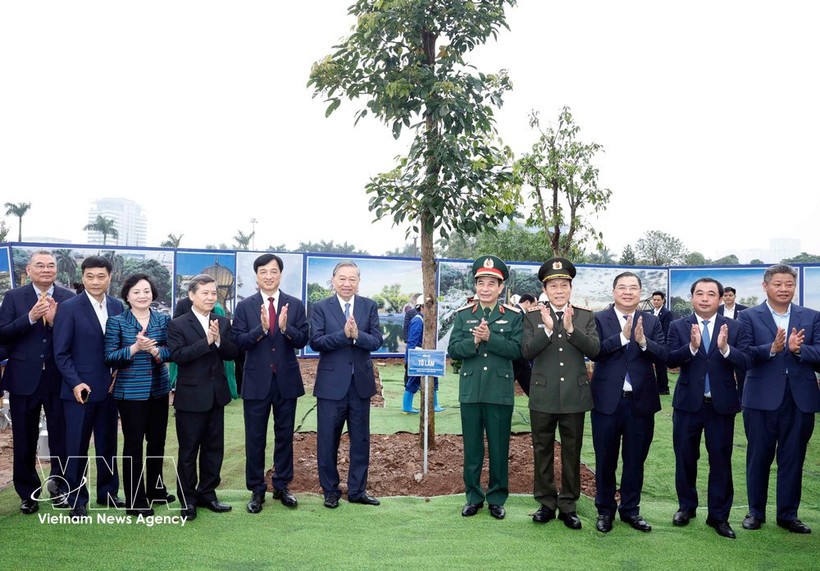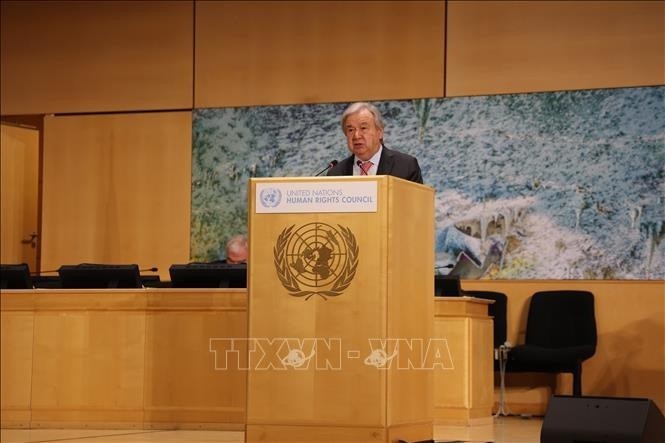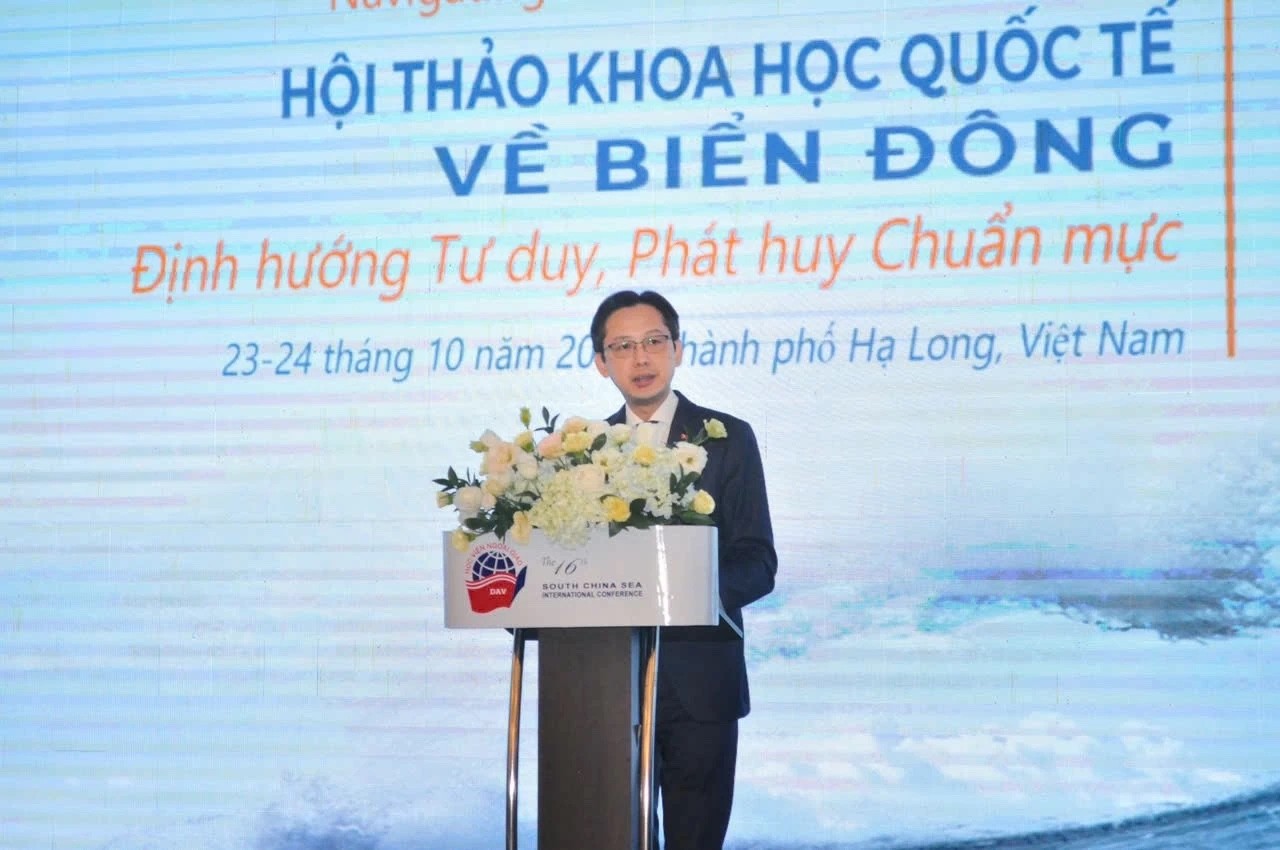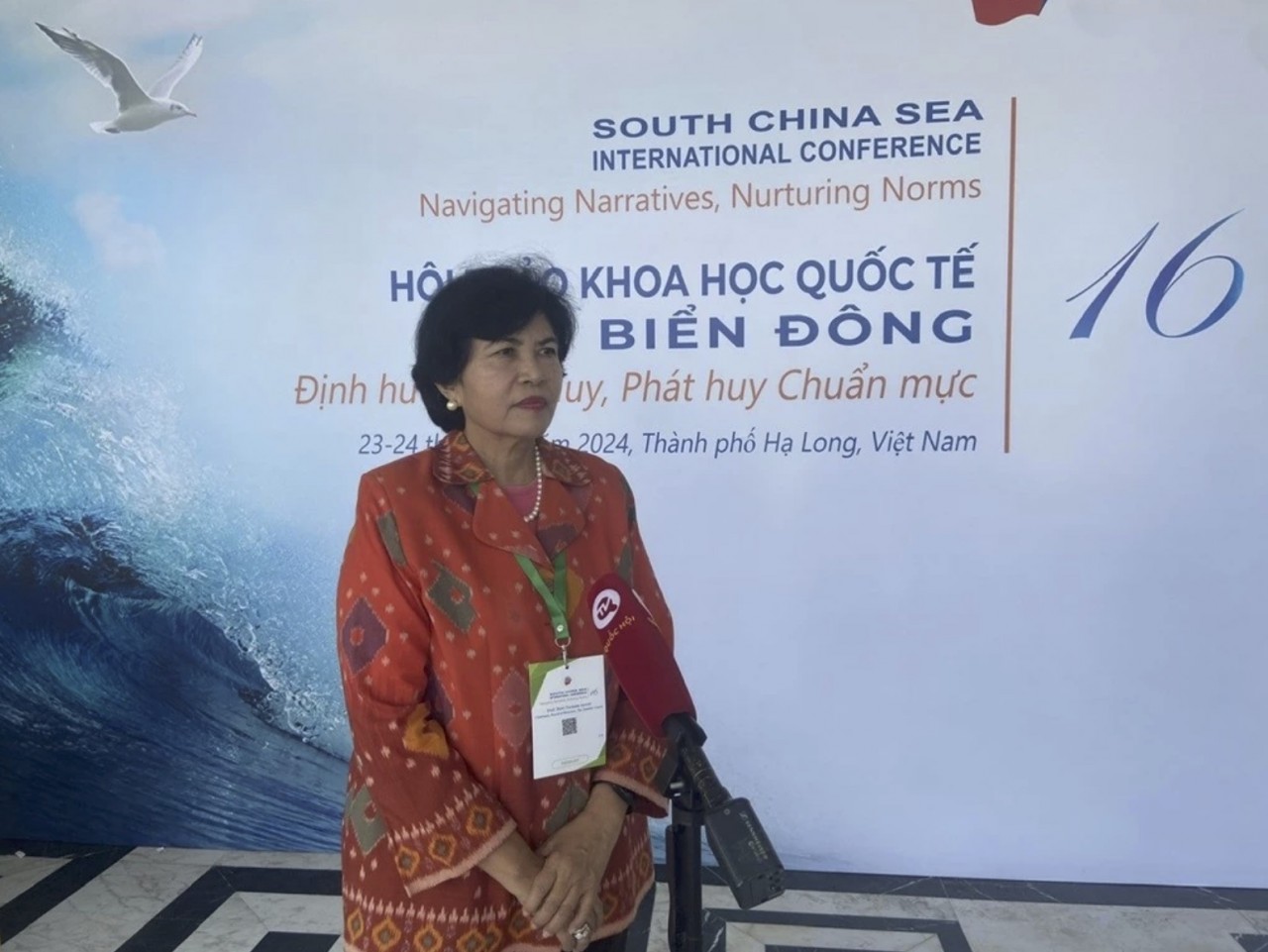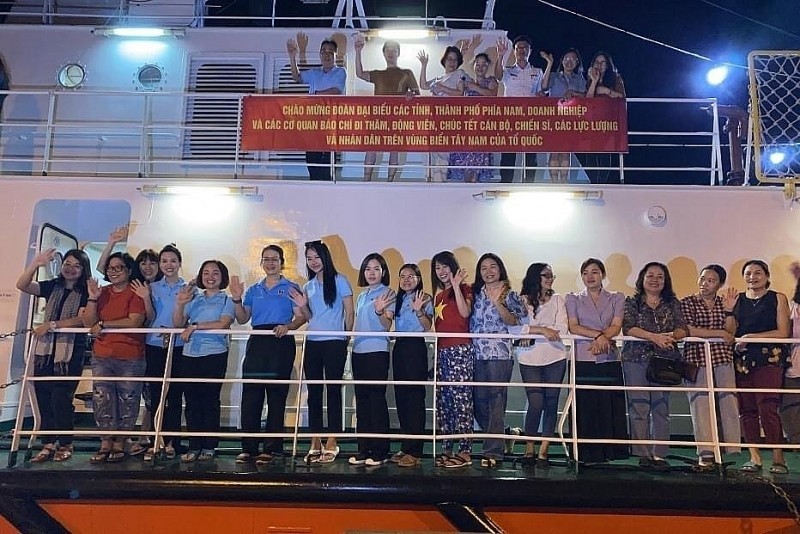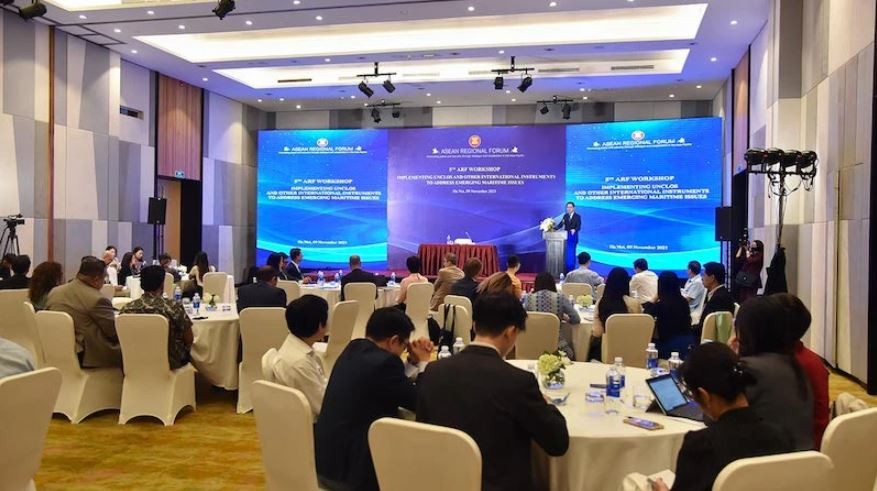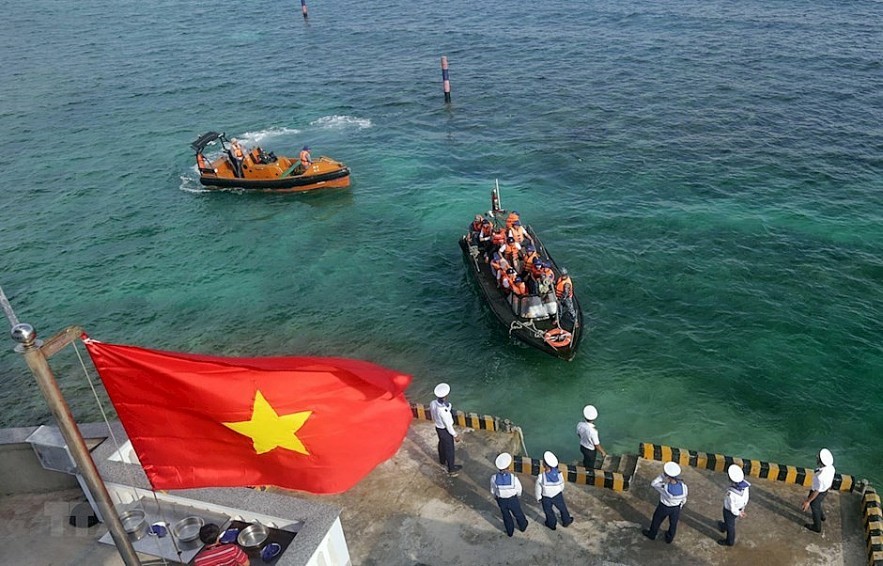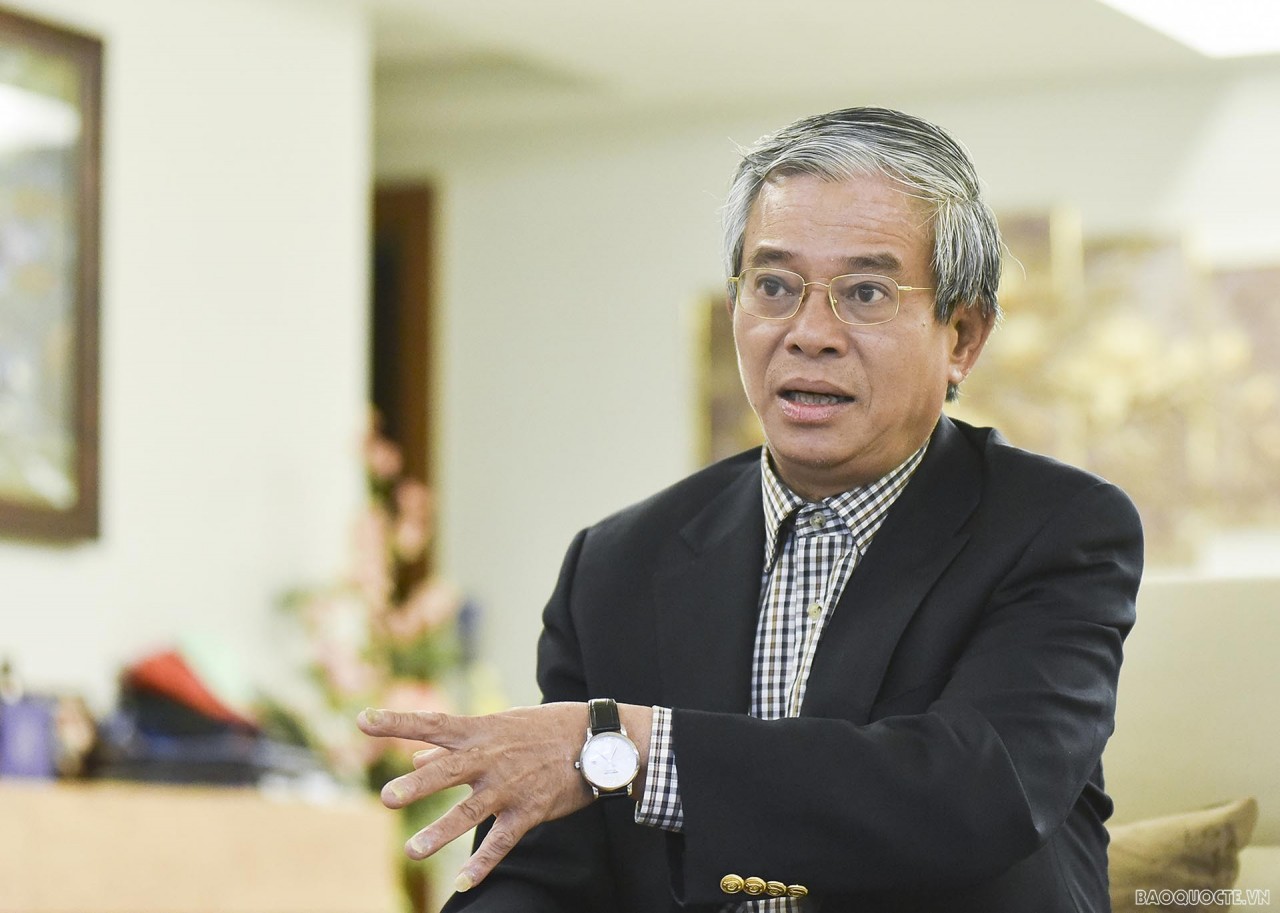Ph.D. Nguyen Thi Lan Anh, Acting Director of Bien Dong Institute for Maritime Studies, Diplomatic Academy of Vietnam
South China Sea Issue: Highlights of 2021
Raise of concerns and lack of trust among stakeholders have been caused by the rise in scale and frequency of unilateral actions, use of law enforcement forces beyond their authority, utilization of big force of armed fishing vessels to maintain their presence and create a new status quo, together with obstruction and interference into the exploration, exploitation, and resource management activities.
The high-density and large-scaled presence of naval forces is not only a manifestation of military power competition but also potential risks and negligence leading to confrontation.
Notably, the sudden increase in maritime and air exercise activities by major countries raises concerns about the risk of an arms race and militarization, which can turn the South China Sea into not only a space for displaying military power between major countries but also a potential global hotbed of conflict.
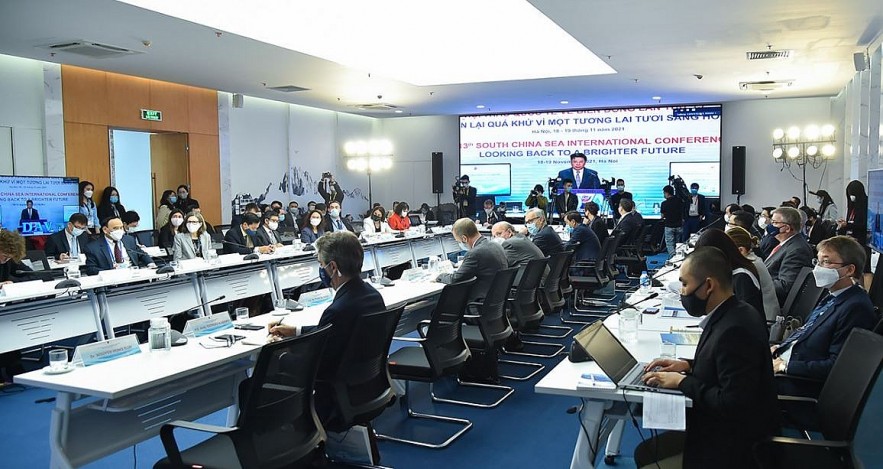 |
| 13th South China Sea International Conference on Nov 18-19. (Photo: Baoquocte) |
Trend of cooperation
Besides tensions, the trend of cooperation has shown improvement. Vietnam and the Philippines have resumed their joint oceanographic and marine scientific research expedition after a 14-year break. Malaysia and Brunei reached an agreement on offshore oil and gas in the two countries' maritime boundary.
Many regional forums have been held to discuss maritime cooperation, including protecting the marine environment, combating negative impacts of climate change, restoring connectivity on the sea, and developing the blue economy.
In the field of politics and diplomacy, although unilateral statements that complicate the dispute still exist, the year 2021 witnessed positive movements both inside and outside the region. Countries and organizations whose interests related to the South China Sea such as the EU, UK, France, the Netherlands, India simultaneously announced their Indo-Pacific strategy, which emphasized their interests and commitment to contribute to the cooperation in maintaining stability in maritime space, including increasing their presence in the South China Sea area to strengthen and protect a rule-based maritime order.
ASEAN and its forums have reached a consensus when confirming their concerns about developments on the ground, affirming the unified and universal role of the United Nations Convention on the Law of the Sea (UNCLOS) in determining maritime claims. ASEAN has called for stakeholders to cooperate to build trust. It emphasized the necessity of implementing the Declaration on Code of Conduct in the South China Sea (DOC) and promote the negotiation of a Code of Conduct in the South China Sea (COC). The association succeeded in issuing the Declaration on the Blue Sea Economy and enhancing cooperation in many fields among member states.
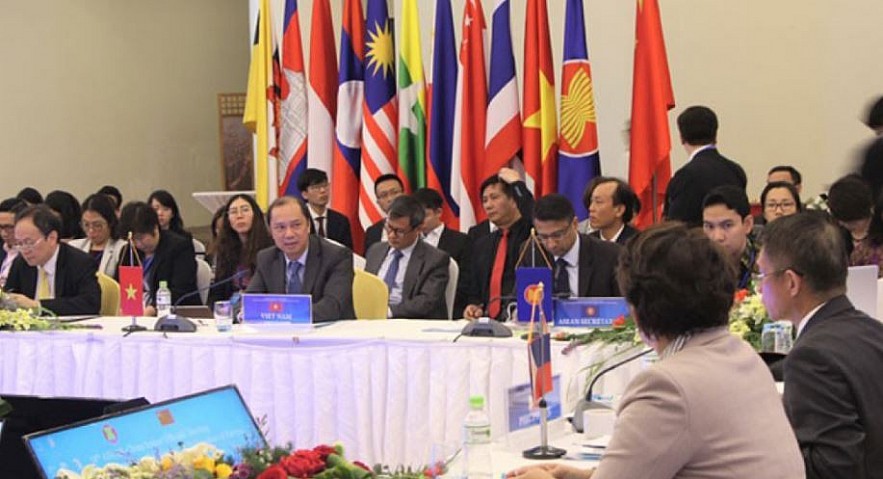 |
| ASEAN, China discuss DOC implementation at the 18th SOM meeting. (Photo: VOV) |
The COC negotiation process was resumed with the common goal towards a substantive and effective set of rules after a period of suspension due to the pandemic.
In the legal field, many domestic law documents are issued with an unclear scope of application, granting overpowered functions for law enforcement forces. Notably, a law allowing the use of weapons to confront activities at sea was passed, raising concerns about the use of backup forces. Despite all those tensions, 2021 sees a trend that started in 2020 as the South China Sea issues continue to be raised in the United Nations.
Japan and New Zealand have sent notes to the United Nations Commission on the Limits of the Continental Shelf, expressing legal perspectives on the South China Sea. Japan rejected the application of straight baselines to the Spratlys and affirmed the importance of the tribunal's ruling in ensuring freedom of navigation and overflight in the South China Sea.
Meanwhile, New Zealand affirms the universal and unified character of UNCLOS in creating a legal basis for maritime claims. It rejects the historic rights and the application of straight baselines to the Spratlys. It opposes the sovereignty and maritime claims over submerged features and affirms the binding value of the tribunal's ruling.
Following the US, Australia, UK, Germany, and France, these countries' notes continue the voices of the international community, expressing clear legal views, upholding the universal character of UNCLOS, and recognizing the legal value of the tribunal's ruling on the South China Sea.
Regarding communication, the application of remote sensing technology has opened up the possibility of transparency on tensions on the ground, creating better conditions for the international community to keep track of the activities in the sea. However, remote sensing technology can also be falsely exploited to publish misinformation. In addition, the fact that illegal sovereignty claims are sometimes included in scientific publications continues complicating and politicizing scientific research activities.
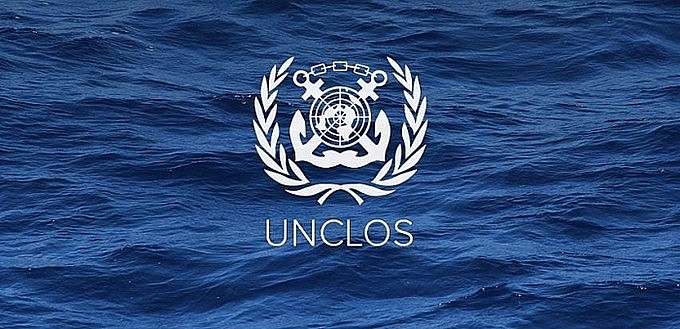 |
| ASEAN and its forums have reached a consensus in affirming the unified and universal role of the United Nations Convention on the Law of the Sea (UNCLOS) in determining maritime claims. (Photo: Baoquocte) |
Multidimensional information
The field of communication sees a positive sign in 2021, as more open, academic forums are held, many researches are published, creating a multidimensional, verifiable information system, increasing transparency and minimizing distortion of information. The participation of non-traditional information channels contributes to the quick and smooth exchange of information, thereby increasing the awareness of academics and the international community about the issue.
The alternating light and dark colors in the painting of the South China Sea issue show that, although there have been no major conflicts in 2021, many underlying waves of tensions are hidden below the surface, which can explode into a major incident at any time.
The Indo-Pacific region is a strategic space that is shaping up with many newly formed security structures and linkages interwoven. On that background, the South China Sea is the focal point, where great power competition is witnessed and the formation of a new international order at sea is tested.
The fight between the trend of militarization, the use of great power, and the trend of freedom and openness, respecting the interests of small and medium-sized countries based on international law will be determined by the roles and responsibilities of powers and the joint efforts of small and medium-sized countries, especially countries in the region, including Vietnam.
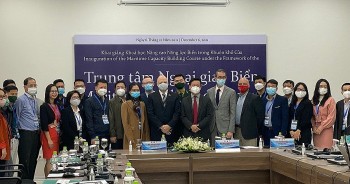 | Vietnam's Academy Opens Maritime Diplomacy Centre The Diplomatic Academy of Vietnam opened the Maritime Diplomacy Centre in a ceremony in Hanoi. |
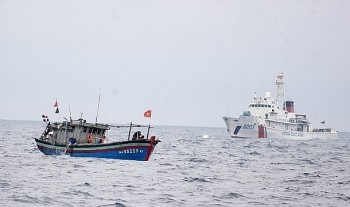 | Vietnam, China Talk Sea Areas beyond Gulf of Tonkin Vietnam and China had in-depth discussions on the delimitation of the sea area beyond the mouth of the Gulf of Tonkin and cooperation for mutual ... |
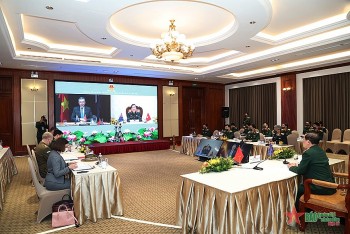 | Vietnam, Australia Foster Trade, Defence Ties The Vietnam - Australia strategic partnership, particularly defence collaboration, has been maintained and promoted over the past time. |
Most read
In topics
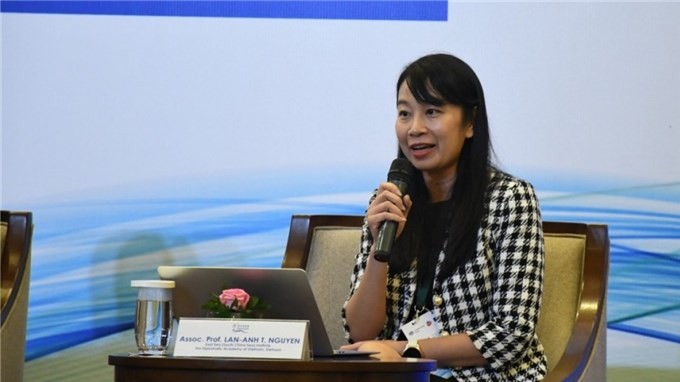 Focus
Focus
Vietnam - Responsible Member of 1982 UNCLOS - DAV’s Director of South China Sea Institute
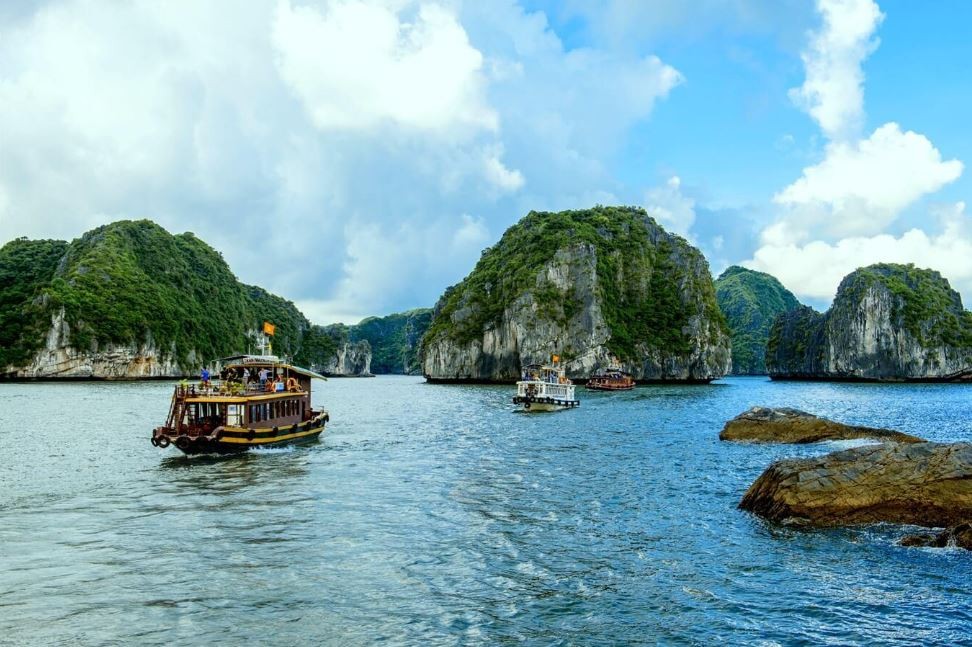 Seas and islands
Seas and islands
Vietnam Respects and Upholds universal value of UN Convention on the Law of the Sea
Recommended
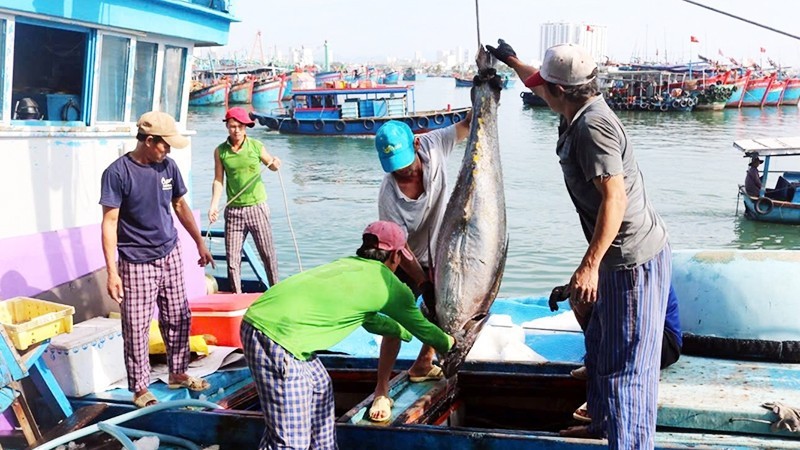 Seas and islands
Seas and islands
Gia Lai Determined to Remove IUU “Yellow Card” for Fisheries
 Seas and islands
Seas and islands
Fishermen Eagerly Set Sail at the Beginning of Spring
 Seas and islands
Seas and islands
Celebrating the Lunar New Year on Truong Sa Island
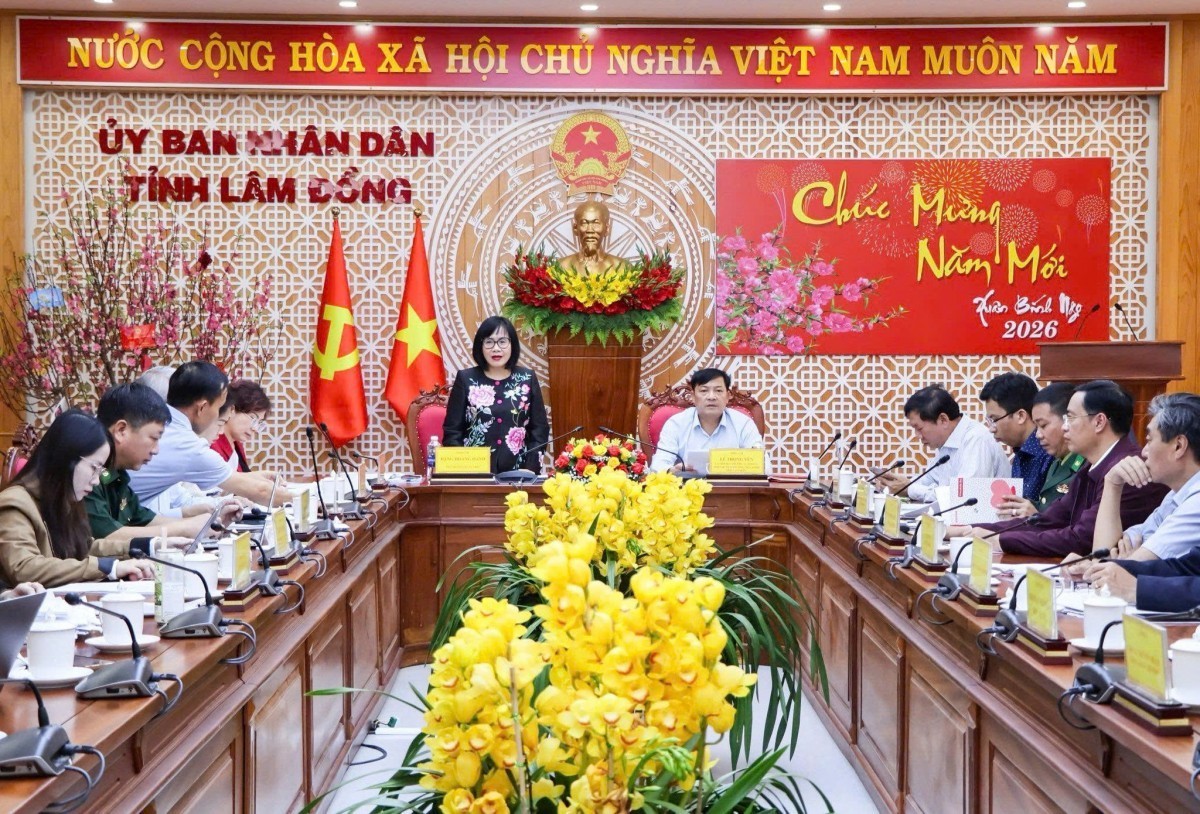 Seas and islands
Seas and islands
Lam Dong Resolves 100% of Fishing Vessels Losing Monitoring Connection in IUU Crackdown
Popular article
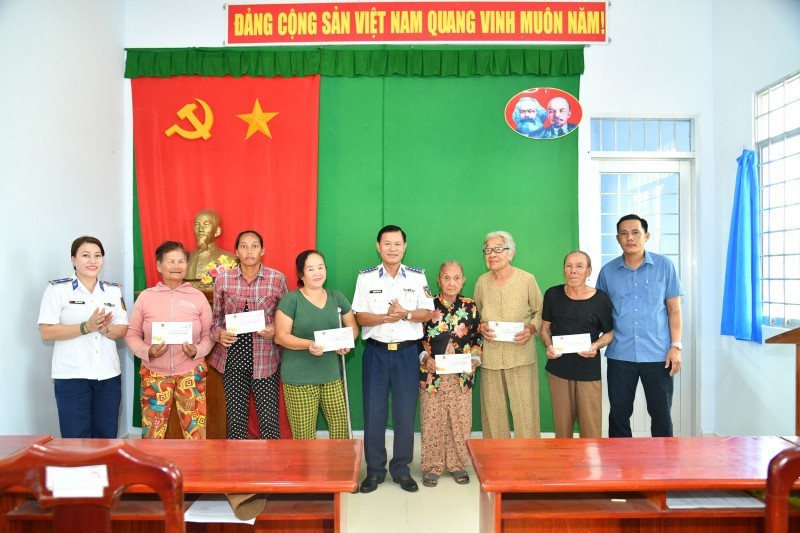 Seas and islands
Seas and islands
Tet Filled with Solidarity Between Army and People on Phu Quoc Island
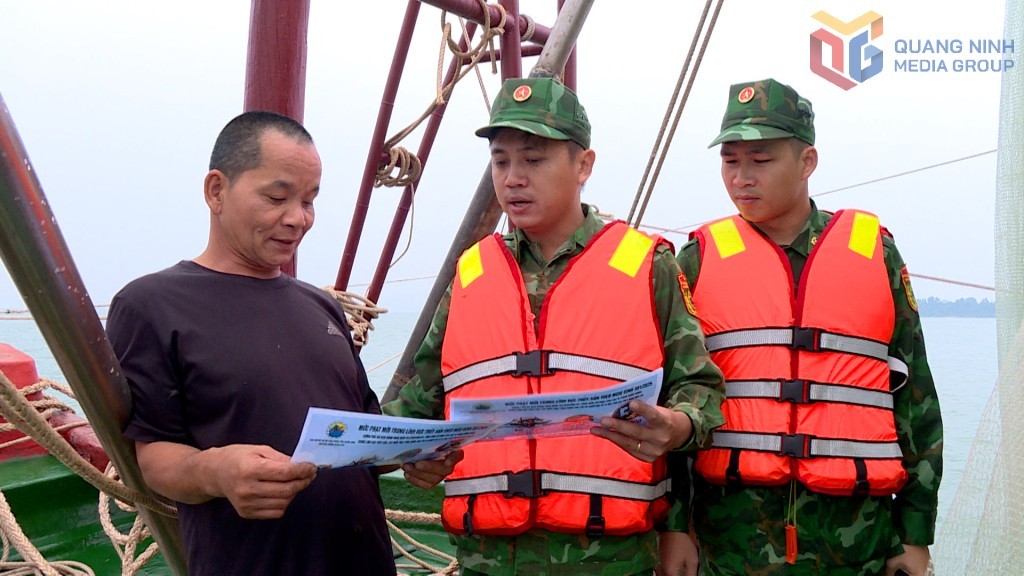 Seas and islands
Seas and islands
Quang Ninh Steps Up IUU Crackdown Toward Sustainable Fisheries
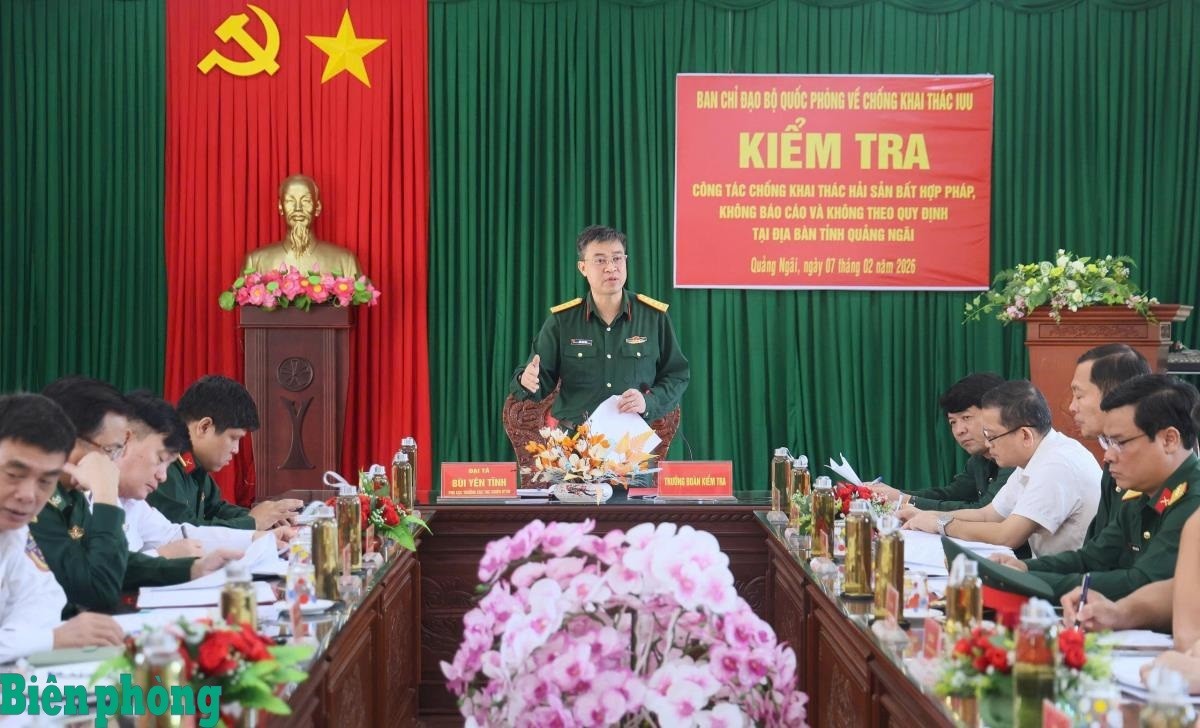 Seas and islands
Seas and islands
Defense Ministry Delegation Inspects IUU Prevention in Quang Ngai
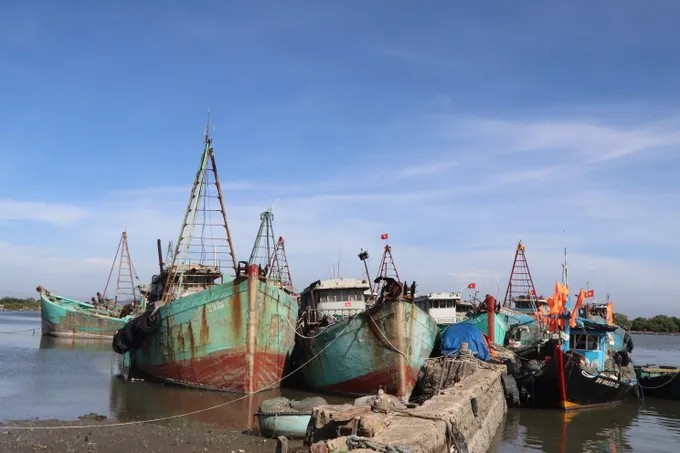 Seas and islands
Seas and islands




